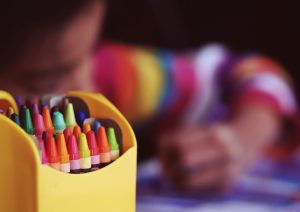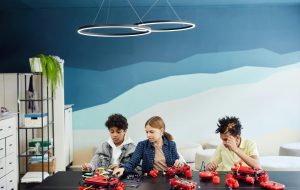How arts education fuels creativity and problem-solving
In today’s fast-paced world, creativity and problem-solving skills are highly valued, as they are essential for success in any industry. However, with the rise of technology and emphasis on STEM subjects (science, technology, engineering, and math), the importance of the arts is often overlooked. Yet, research has consistently shown that arts education plays a vital role in nurturing creativity and developing problem-solving abilities. In this article, we will explore how arts education fuels creativity and problem-solving, and why it should continue to be a crucial part of the curriculum for students of all ages.
The Benefits of Arts Education
It is no secret that participating in activities such as painting, music, dance, or drama has numerous benefits for individuals of all ages. However, the impact of arts education goes beyond providing a creative outlet or hobby. Studies have revealed that students who are exposed to arts education have higher academic achievement, increased self-confidence and self-expression, and improved social and emotional skills.
Enhanced Imagination and Creativity
Participating in arts education allows individuals to use their imagination and explore their creativity freely. Unlike other subjects, there is no right or wrong answer in the arts, and this encourages students to think outside the box. Whether it is through writing, painting, or acting, students are challenged to come up with new ideas and solutions, fostering creativity and innovation.
Developing Critical Thinking Skills
The process of creating art requires individuals to make decisions and solve problems. From choosing the right materials and techniques to creating a concept from scratch, art encourages individuals to think critically and develop problem-solving skills. This translates to other aspects of life, where individuals are faced with challenges that require creative thinking and decision-making.
Collaboration and Communication
The arts also provide students with opportunities to collaborate with others, whether it is in a group project or a performance. Working together towards a common goal requires effective communication, compromise, and respect for different ideas and perspectives. These skills are crucial in today’s global and interconnected world, where collaboration is essential in the workplace.
The Connection between Arts Education and Problem-Solving
While it is evident that arts education has numerous benefits, its impact on problem-solving abilities is often overlooked. However, the two are interconnected, and here’s how:
Out-of-the-Box Thinking
As mentioned earlier, arts education encourages individuals to think outside the box and come up with new ideas and solutions. This type of thinking is crucial for problem-solving, as it allows individuals to approach challenges from different angles and come up with innovative solutions.
Dealing with Ambiguity
In the arts, there is often no one right answer or method to create something. This is similar to real-life problem-solving, where there is often not a clear-cut solution. Arts education teaches individuals to embrace ambiguity and experiment with different approaches, rather than always seeking a single correct answer.
Learning from Failure
Creating art is a trial-and-error process, where individuals learn from mistakes and make adjustments accordingly. This also applies to problem-solving, where individuals may not always come up with the right solution on the first attempt. However, through arts education, students learn to embrace failure as an opportunity to learn and improve, rather than a setback.
The Importance of Including the Arts in Education
Despite the proven benefits of arts education, budget cuts and a focus on STEM subjects have resulted in a decline in its inclusion in school curriculums. However, this is a mistake that needs to be corrected, as the arts provide a foundation for creativity and problem-solving, which are crucial skills needed for success in any field.
Furthermore, the arts also help individuals develop a sense of empathy, cultural understanding, and appreciation for diversity. In today’s polarized society, these are essential qualities that need to be cultivated in students for a more harmonious and inclusive future.
Conclusion
In conclusion, arts education plays a significant role in nurturing creativity and developing problem-solving skills. Through the arts, individuals learn to think critically, collaborate, and embrace failure – all essential skills needed for success in today’s world. As such, it is crucial to continue to advocate for the inclusion of the arts in education, as it provides a holistic and well-rounded education for students of all ages.










